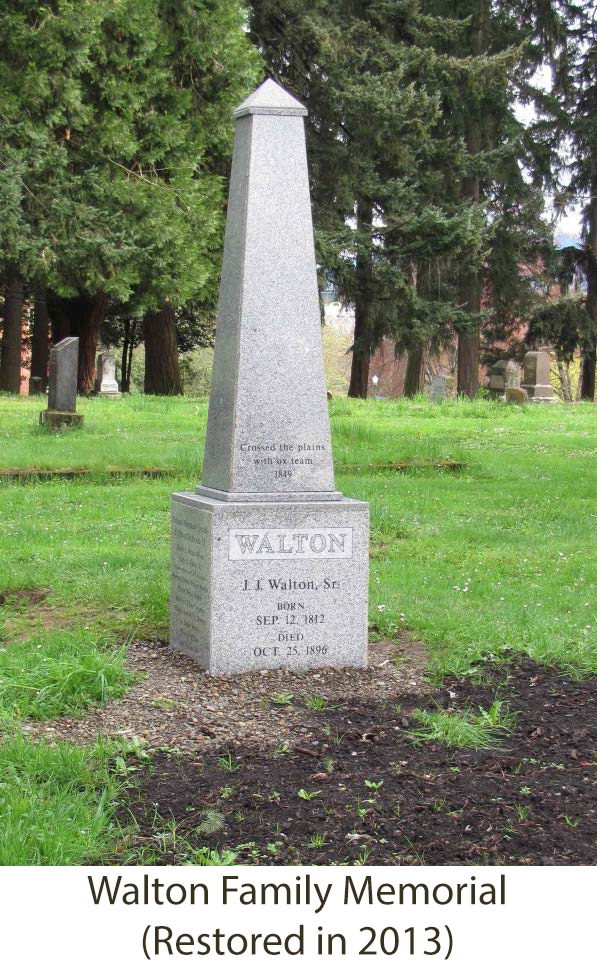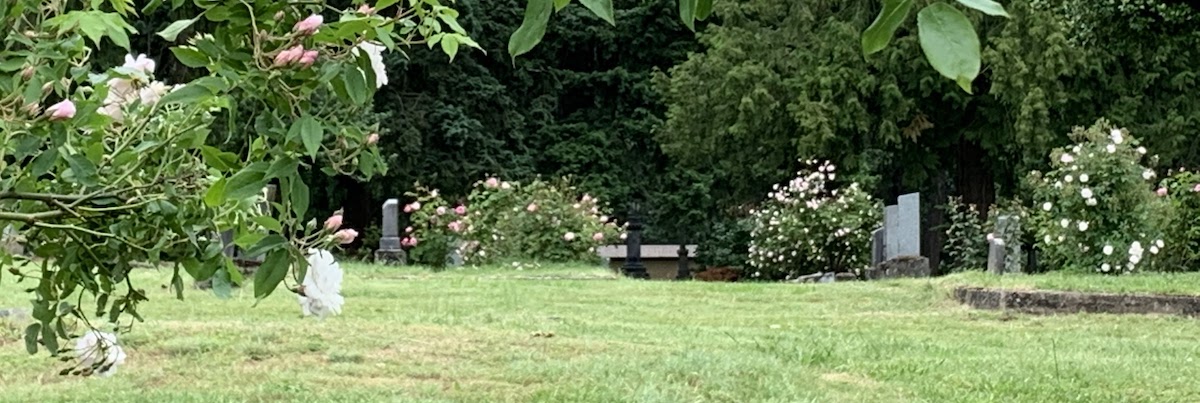Judge J.J. Walton (1838-1909) ─ Helped establish the University of Oregon in Eugene
Judge J. J. Walton, Jr. was a pivotal figure in the establishment of the University of Oregon in Eugene in 1876.
A keen interest in education, in July 1872 he served as a director in the Union University Association. That organization drafted a bill presented to the state legislature offering $50,000 worth of grounds and buildings for the state to locate the university in Eugene. The bill passed in 1874.
Funded by subscriptions rather than taxes, ground was soon broken for Deady Hall. It was the very first building and had to be complete before the state would grant the deed to establish the university. However, fall came and construction money ran out before Deady Hall had a roof.
At this point, J.J. Walton, Jr. left his bench and went farm-to-farm seeking donations. A pig here, a sack of grain there, several chickens here. Judge Walton sold them in town to raise money to complete the roof. Fortunately the fall rains came late that year.
A staunch democrat, he took an important part in the affairs of the Democratic Party in Lane County. Born in Indiana in 1838, his father had immigrated in colonial times from England to New England. In 1848, 12-year old Walton walked beside his parent’s ox-drawn wagon as the family crossed the plains to Oregon. The family initially settled in Freemont California, then Ashland, Oregon where Walton Sr. took up a Donation Land Act Claim.
Due to unrest with resident Native Americans, in 1858 his mother Mrs. Elizabeth Gale Walton, a teacher, insisted the family move to Eugene. Young J.J. Walton, Jr. graduated from Columbia College, the first institute of higher learning in Eugene and namesake of the neighborhood currently known as College Hill.
Admitted to the Bar in 1863, Walton started his successful practice in Eugene. By 1868, Walton was elected County Judge. During his first term, the road was put through to the coast and the town of Walton was named after him. Walton also served as Deputy Assistant Attorney for four years and was a United States Land Commissioner. At one time, Walton was a member of the Oregon state legislature.
In 1909 Judge Walton died peacefully in his bed following what was believed to be a heart failure.
His obituary read, in Lane County, “…no man occupied a more honorable position.” Public spirited, Walton was known for his integrity and energy in the up building of the city and community.

